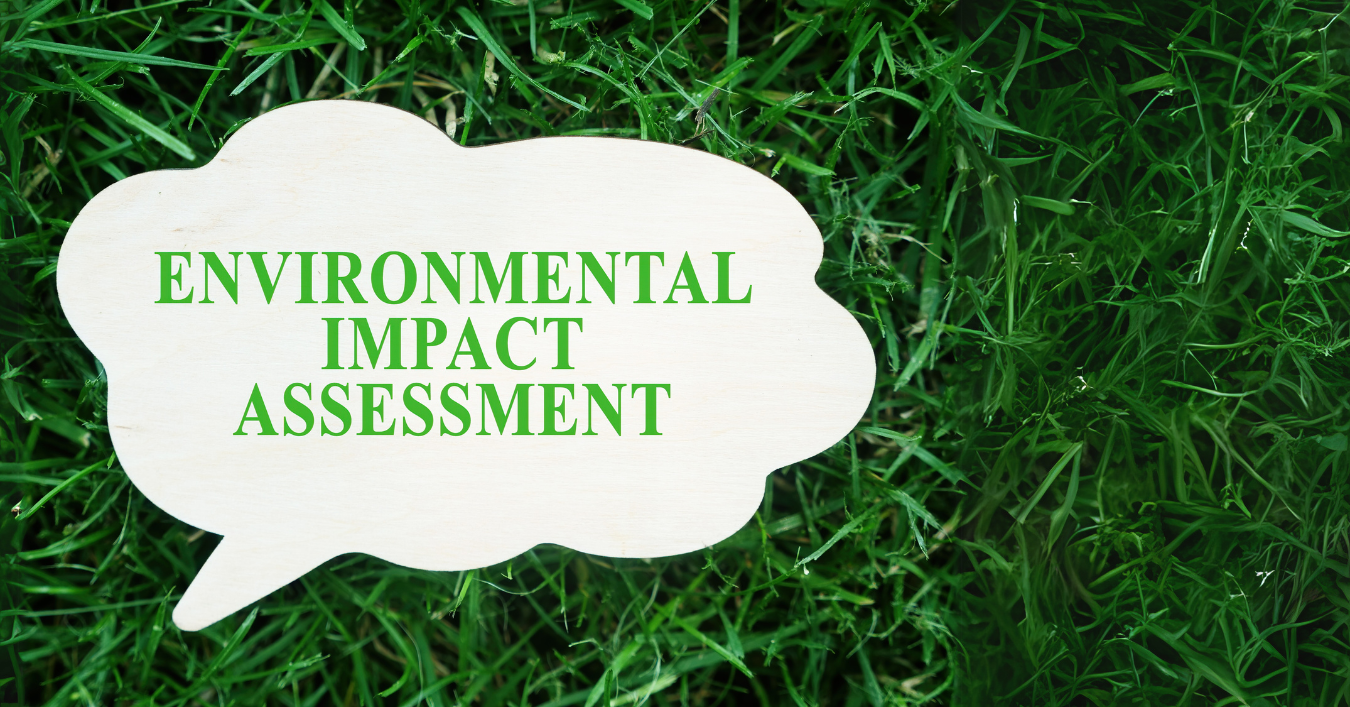
Level 1 Award in Introduction to Environmental Impact Assessment
- Gain foundational knowledge of the Environmental Impact Assessment process and its importance in sustainable development.
- Learn how to assess the environmental implications of projects and identify potential impacts on ecosystems, human health, and natural resources.
- Understand the legal, regulatory, and ethical aspects of EIA in various industries.
- Build a strong base for further study or a career in environmental management, consultancy, or regulatory bodies.
- Understand the basic principles and purpose of Environmental Impact Assessments (EIA).
- Be familiar with the stages of the EIA process, including scoping, data collection, impact analysis, and reporting.
- Understand the legal and regulatory frameworks surrounding EIA in different regions and industries.
- Gain knowledge of the role of EIA in promoting sustainable development and protecting environmental health.
- Introduction to Environmental Impact Assessment
- Overview of the EIA process and its importance in environmental management.
- Key concepts in environmental sustainability and how EIA contributes to minimizing negative impacts.
- The Stages of the Environmental Impact Assessment Process
- Detailed exploration of the key stages in an EIA, from project scoping to reporting findings.
- Introduction to methods for assessing environmental impacts and their significance.
- Data Collection and Analysis in EIA
- Understanding the methods for collecting environmental data for EIA.
- Introduction to impact analysis techniques used to predict and evaluate potential effects on the environment.
- Legal and Regulatory Frameworks for EIA
- Study of the laws, policies, and guidelines that govern the EIA process.
- Overview of international, national, and regional EIA regulations and their application.
- Ethical Considerations and Public Participation in EIA
- Exploring the ethical considerations in environmental decision-making.
- Understanding the role of public participation and stakeholder engagement in the EIA process.
- Progress to more advanced studies in environmental impact assessment, sustainable development, or environmental management.
- Work in entry-level roles in environmental consultancy, EIA coordination, or regulatory bodies.
- Pursue careers in the public or private sectors, focusing on environmental policy, environmental protection, and sustainability.
- Comprehensive Foundation: Gain a strong understanding of the EIA process that can be applied to projects in various sectors, including construction, energy, and infrastructure.
- Practical Approach: Learn through real-world case studies and practical examples of EIA applications.
- Experienced Instructors: Study under the guidance of experts with extensive experience in environmental consultancy and regulatory practices.
- Globally Recognized Certification: Enhance your career prospects with a qualification valued by environmental consultancies, government agencies, and industries involved in large-scale development projects.
Study Units
- Introduction to Environmental Impact Assessment
- Overview of the EIA process and its importance in environmental management.
- Key concepts in environmental sustainability and how EIA contributes to minimizing negative impacts.
- The Stages of the Environmental Impact Assessment Process
- Detailed exploration of the key stages in an EIA, from project scoping to reporting findings.
- Introduction to methods for assessing environmental impacts and their significance.
- Data Collection and Analysis in EIA
- Understanding the methods for collecting environmental data for EIA.
- Introduction to impact analysis techniques used to predict and evaluate potential effects on the environment.
- Legal and Regulatory Frameworks for EIA
- Study of the laws, policies, and guidelines that govern the EIA process.
- Overview of international, national, and regional EIA regulations and their application.
- Ethical Considerations and Public Participation in EIA
- Exploring the ethical considerations in environmental decision-making.
- Understanding the role of public participation and stakeholder engagement in the EIA process.
Upon completing this award, learners will:
- Understand the basic principles and purpose of Environmental Impact Assessments (EIA).
- Be familiar with the stages of the EIA process, including scoping, data collection, impact analysis, and reporting.
- Understand the legal and regulatory frameworks surrounding EIA in different regions and industries.
- Gain knowledge of the role of EIA in promoting sustainable development and protecting environmental health.
This course is ideal for individuals who want to understand the role of Environmental Impact Assessment in protecting ecosystems, public health, and sustainable development. It’s especially suited for:
Aspiring Environmental Professionals
Learners planning a career in environmental consultancy, planning, or regulatory roles who need a strong introduction to the EIA process.
Students and Graduates
Individuals pursuing studies in environmental science, geography, engineering, or planning who want to build foundational knowledge in EIA.
Project Planners and Engineers
Professionals involved in planning or managing development projects who need to understand the EIA requirements and compliance expectations.
Government and Regulatory Staff
Personnel working in environmental or planning departments seeking to improve their understanding of EIA procedures, legislation, and best practices.
NGO and Advocacy Workers
Environmental campaigners and community organizers looking to engage in environmental assessments, public participation, or legal reviews of major projects.
Developers and Construction Professionals
Stakeholders involved in infrastructure, real estate, or industrial development projects who need to recognize the environmental responsibilities linked to development.
Career Changers
Individuals transitioning into the environmental or sustainability sectors and looking for an accessible, recognized qualification to build their expertise.
Our assessment process is designed to ensure every learner achieves the required level of knowledge, skills, and understanding outlined in each course unit.
Purpose of Assessment
Assessment helps measure how well a learner has met the learning outcomes. It ensures consistency, quality, and fairness across all learners.
What Learners Need to Do
Learners must provide clear evidence that shows they have met all the learning outcomes and assessment criteria for each unit. This evidence can take different forms depending on the course and type of learning.
Types of Acceptable Evidence
Assignments, reports, or projects
Worksheets or written tasks
Portfolios of practical work
Answers to oral or written questions
Test or exam papers
Understanding the Structure
Learning outcomes explain what learners should know, understand, or be able to do.
Assessment criteria set the standard learners must meet to achieve each learning outcome.
Assessment Guidelines
All assessment must be authentic, current, and relevant to the unit.
Evidence must match each assessment criterion clearly.
Plagiarism or copied work is not accepted.
All learners must complete assessments within the given timelines.
Where applicable, assessments may be reviewed or verified by internal or external quality assurers.
Full learning outcomes and assessment criteria for each qualification are available from page 8 of the course handbook.
Top Courses
No results found.
Related Courses
Let's Get in touch
Deleting Course Review
Course Access
This course is password protected. To access it please enter your password below:



